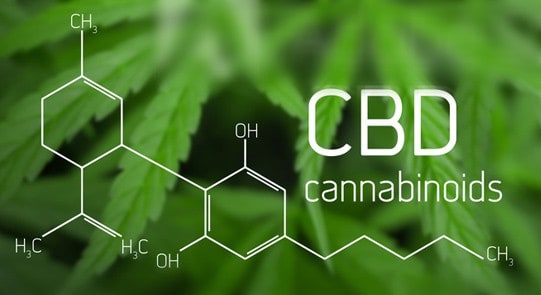The rising buzz around the positive health benefits of CBD has many people wondering: does CBD really do what people say it can? While research into CBD’s benefits has unfortunately not been allowed to flourish thanks to the stigmas associated with marijuana as a Schedule I drug, nevertheless there’s an increasing body of scientific studies […]

The rising buzz around the positive health benefits of CBD has many people wondering: does CBD really do what people say it can? While research into CBD’s benefits has unfortunately not been allowed to flourish thanks to the stigmas associated with marijuana as a Schedule I drug, nevertheless there’s an increasing body of scientific studies that point to a string of truth in anecdotal evidence.
Cannabidiol, known more commonly by its short-hand CBD, is a great organic way to reduce physical pain, anxiety and to even ease the onset of epileptic seizures. Unlike THC, the other cannabinoid contained in marijuana, it does not produce a psychoactive effect. Even the World Health Organization has admitted that pure CBD is safe, non addictive and shows promise for treating a number of ailments naturally.
Pain Relief
CBD can help users with inflammation or chronic pain because CBD has the ability to reduce the reabsorption of certain chemicals associated with regulating pain, meaning more of these regulating chemicals remain in the body. It also is able to help the body use its naturally produced endocannabinoids more effectively—yes, the human body makes its own cannabinoids. As the endocannabinoid system helps regulate our sleep and pain levels, using CBD to improve ECS performance reduces both pain and insomnia.
Epilepsy
Even the Federal Drug Administration admits that cannabidiol can be helpful in reducing seizures. In June 2018, the FDA approved CBD based medication Epidiolex to help reduce the risk and severity of seizures in patients with epilepsy.
Anxiety, Depression, OCD and PTSD
Bad news first: few clinical studies have been done on the measurable efficacy of CBD for relieving symptoms of anxiety-related diagnoses like general anxiety disorder, social anxiety disorder, obsessive-compulsive disorder, post-traumatic stress disorder and related mild to moderate depression.
Good news: What trials have been published suggest what CBD user testimonies have already been claiming for years is true. One study found that pre-dosing test subjects with social anxiety with CBD before they were to give a public speech “significantly reduced anxiety, cognitive impairment, and discomfort in their speech performance.”
Alzheimer’s Symptoms
While there’s as of yet no laboratory proof that cannabinoids can prevent Alzheimer’s and dementia, more and more research is showing that CBD can be a positive treatment for its associated symptoms. Mid- and late-stage Alzheimer’s often comes with increased aggression and agitation, which can benefit from the positive effects of CBD on mood.
Nicotine Withdrawal
In 2013 the scientific publication Addictive Behaviors published a small study looking to determine whether or not CBD could reduce addiction cravings for opioids, nicotine and other addictive substances. The results were overwhelmingly positive. Smokers being treated with CBD smoked 40% fewer cigarettes than the control group. Not only did the CBD help reduce cravings, it also helped treat withdrawal side effects like increased stress and irritability.